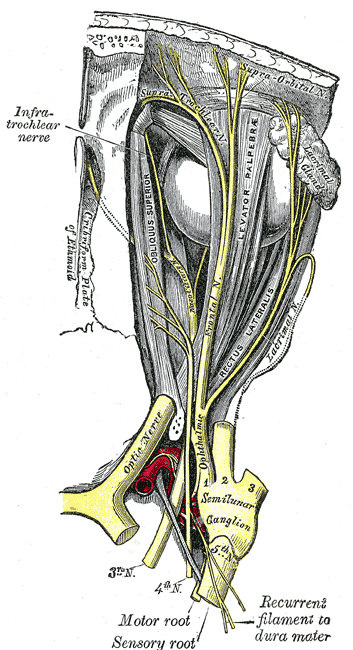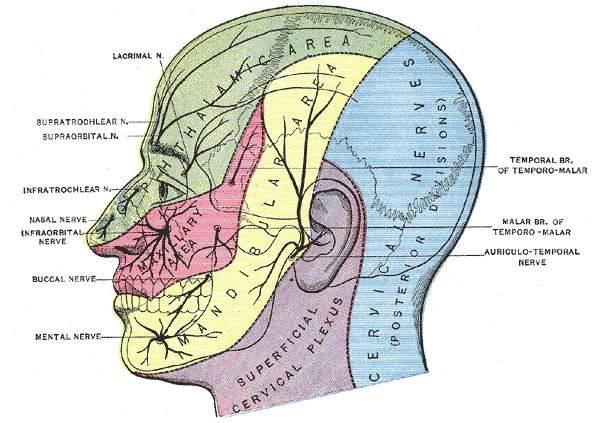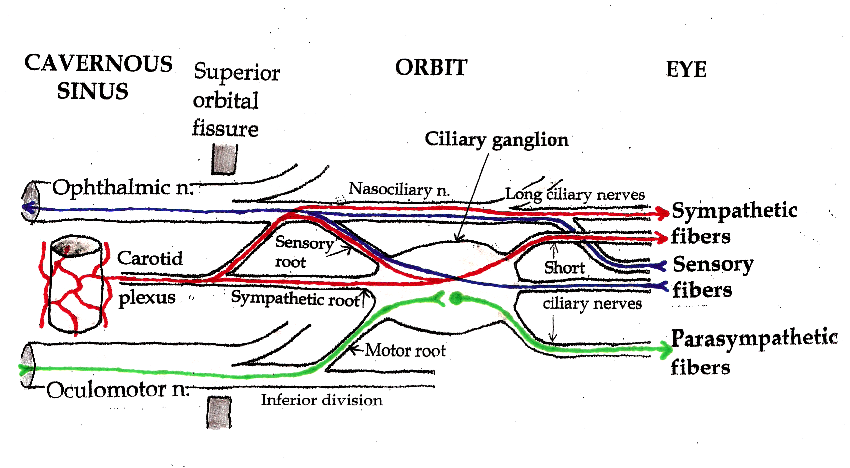Ophthalmic nerve
Template:Infobox Nerve Editor-In-Chief: C. Michael Gibson, M.S., M.D. [1]
The ophthalmic nerve is one of the three branches of the trigeminal nerve, the fifth cranial nerve. Like the maxillary branch of the trigeminal nerve, the ophthalmic branch carries sensory fibers only. The ophthalmic nerve passes through the cavernous sinus and its nasociliary branch exits the skull through the superior orbital fissure.
Branches
Path
The ophthalmic nerve supplies branches to the cornea, ciliary body, and iris; to the lacrimal gland and conjunctiva; to the part of the mucous membrane of the nasal cavity; and to the skin of the eyelids, eyebrow, forehead, and nose.
It is the smallest of the three divisions of the trigeminal, and arises from the upper part of the semilunar ganglion as a short, flattened band, about 2.5 cm. long, which passes forward along the lateral wall of the cavernous sinus, below the oculomotor and trochlear nerves; just before entering the orbit, through the superior orbital fissure, it divides into three branches, lacrimal, frontal, and nasociliary.
The ophthalmic nerve is joined by filaments from the cavernous plexus of the sympathetic, and communicates with the oculomotor, trochlear, and abducent nerves; it gives off a recurrent (meningeal) filament which passes between the layers of the tentorium.
Additional images
-
Nerves of the orbit. Seen from above.
-
Dermatome distribution of the trigeminal nerve
-
Pathways in the Ciliary Ganglion.


